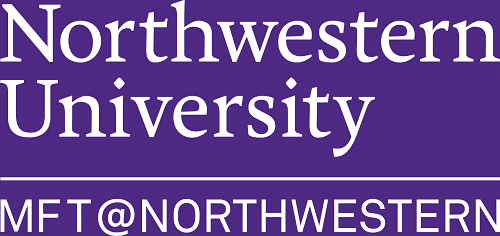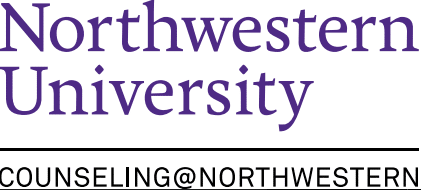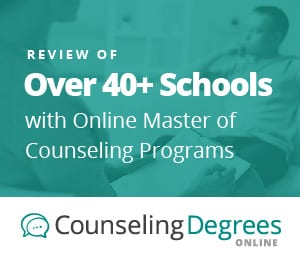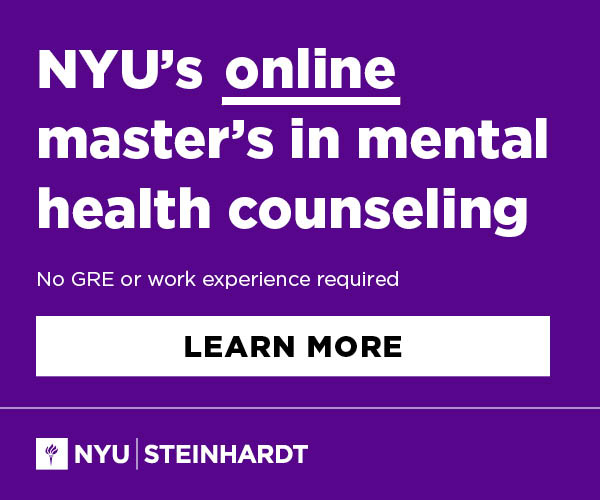 Walden University : PhD in Counselor Education and Supervision, Clinical Mental Health Counseling (HLC Accredited)
Walden University : PhD in Counselor Education and Supervision, Clinical Mental Health Counseling (HLC Accredited) Walden University : MS in Psychology (HLC Accredited)
Walden University : MS in Psychology (HLC Accredited) Walden University : PhD in Clinical Psychology (HLC Accredited)
Walden University : PhD in Clinical Psychology (HLC Accredited) Walden University : Master of Social Work (MSW) (CSWE Accredited)
Walden University : Master of Social Work (MSW) (CSWE Accredited) Walden University : MS Dual Degree in Clinical Mental Health Counseling and School Counseling (CACREP Accredited, six specializations to choose from)
Walden University : MS Dual Degree in Clinical Mental Health Counseling and School Counseling (CACREP Accredited, six specializations to choose from) Walden University : MS in Marriage, Couple, and Family Counseling (CACREP Accredited)
Walden University : MS in Marriage, Couple, and Family Counseling (CACREP Accredited) Walden University : MS in School Counseling (CACREP Accredited)
Walden University : MS in School Counseling (CACREP Accredited) Walden University : BS in Psychology (HLC Accredited)
Walden University : BS in Psychology (HLC Accredited) Walden University : MS in Clinical Mental Health Counseling (CACREP Accredited, six specializations to choose from)
Walden University : MS in Clinical Mental Health Counseling (CACREP Accredited, six specializations to choose from)Step 1: Understand Your Career Goals
Before you can narrow down your options, it’s essential to have a clear picture of the type of counseling career you want to pursue. The term “counselor” covers a wide range of roles—such as Licensed Professional Counselor (LPC), Licensed Mental Health Counselor (LMHC), school counselor, marriage and family therapist (LMFT), and substance abuse counselor—and each path has its own educational and licensure requirements.
Your career goals will influence the specialization, curriculum, and even the program format that’s right for you. For example, someone planning to work in K–12 schools will need a program aligned with school counseling certification requirements, while someone aiming for private practice in mental health counseling should choose a curriculum that meets LPC or LMHC standards in their state.
It’s also important to confirm early on whether a program meets the licensure requirements in the state where you intend to practice. State boards can differ significantly in their rules for coursework, supervised hours, and accreditation. Understanding these requirements will help ensure you choose a program that sets you up for success in your desired role.
For more details about potential pathways and professional opportunities after graduation, see our guide to master's in counseling careers.
Step 2: Verify Accreditation
One of the most important steps in choosing the right online master's in counseling program is checking its accreditation status. Specifically, look for programs that are CACREP-accredited online counseling programs.
Why CACREP Accreditation Matters
- Streamlines Licensure Eligibility: Graduates from CACREP-accredited programs often experience a smoother path to obtaining state licensure, as these programs are designed to meet or exceed state training and curriculum standards.
- Required for Licensure in Some States: In states such as Ohio, Kentucky, North Carolina, and Florida, graduation from a CACREP-accredited program is mandatory for licensing.
- Employers Recognize Accreditation: Many employers—especially in government agencies and universities—prefer or require candidates with degrees from CACREP-accredited programs, as it signals consistent, high-quality training.
How to Confirm Accreditation
- Use the CACREP directory to verify that programs are currently accredited.
- Ensure not just institutional accreditation but that the counseling program itself is specifically CACREP-accredited.
What About Non-CACREP Programs?
While CACREP accreditation offers clear advantages, especially for licensure and portability, some non-CACREP programs may still qualify for licensure in certain states—provided they meet state-specific requirements. In those cases, carefully review your state’s counseling board rules to confirm eligibility.
Step 3: Evaluate Specializations
Choosing the right specialization in your online master’s in counseling program is vital to ensure your education aligns with your career aspirations and licensure goals. Most programs offer distinct tracks, so consider which path suits your intended role:
- Clinical Mental Health Counseling (Generalist): Focuses on techniques for working with individuals and groups—ideal for private practice or community mental health.
- School Counseling: Prepares students for K–12 school environments, including academic support and career advisement.
- Marriage and Family Therapy (MFT): Specializes in relationship and family dynamics and prepares for LMFT licensure.
- Substance Abuse Counseling: Designed for those aiming to work in addiction treatment and recovery settings.
- Dual-Degree or Dual-Licensure Options: Some programs offer combined tracks—such as Clinical Mental Health and School Counseling—allowing students to qualify for multiple licenses with one degree. Explore your options in dual master’s of counseling programs.
Why It Matters
Your specialization not only impacts what coursework you’ll complete but also determines which licensure you’ll pursue. For example, California requires a specific school counseling credential separate from mental health licensure. Additionally, dual-specialization programs can open broader career options—though they'll require additional credits and potentially more time.
When reviewing programs, ask:
- Does the specialization align with your long-term career goals?
- Is the program specifically tailored to licensure requirements in your state?
- If you're considering a dual pathway, does the program streamline both tracks efficiently?
Consider a Featured Online Counseling Program
| School and Program Information | Online Program? Entry Requirements |
Course Information |
|---|---|---|
| Walden University
PhD in Counselor Education and Supervision, Clinical Mental Health Counseling
HLC Accredited |
✔ Online
|
Do you want to teach and empower the next generation of mental health counselors? With a PhD in Counselor Education and Supervision with a specialization in Clinical Mental Health Counseling, you’ll prepare to train future clinical mental health counselors or broaden private-practice credentials. Ideal for students with a nonclinical mental health master’s degree, this specialization takes a deep dive into diagnosis, advanced psychopathology, and psychopharmacology. You’ll examine the Diagnostic and Statistical Manual of Mental Disorders (DSM) as well as different treatment modalities, diagnoses, and commonly used pharmaceuticals. Learn More |
| Walden University
MS in Psychology
HLC Accredited |
✔ Online
|
Benefit from this specialization’s comprehensive study of the social, cultural, and cognitive aspects of human behavior as you explore the fundamentals of psychology, including its theories, methods, and principles. You can evaluate and design research methods and examine multicultural and/or global perspectives of psychology. This specialization also offers an optional doctoral preparation track, for those who want a head start on their doctorate. If you choose Walden’s competency-based Tempo Learning® format, you’ll have access to three-month, all-you-can-learn subscriptions, no weekly deadlines, and faculty and coach support when needed. Learn More |
| Walden University
PhD in Clinical Psychology
HLC Accredited |
✔ Online
|
Gain the skills to assess mental wellness and provide interventions. Taught by respected psychology faculty, coursework explores current theories and empirically supported practice. You can combine scholarly research with practical experience. Learn More |
| Walden University
Master of Social Work (MSW)
CSWE Accredited |
✔ Online
|
Walden’s CSWE-accredited Master of Social Work (MSW) program can empower you to shape a better, more equitable world. Our program combines a purposeful curriculum with immersive learning experiences to help you become the confident and highly capable social work practitioner you know you can be. Learn More |
| Walden University
MS Dual Degree in Clinical Mental Health Counseling and School Counseling
 CACREP Accredited CACREP Accredited |
✔ Online
GRE scores not required |
The counseling field is in need of qualified, compassionate professionals like you to meet the demand for services. In Walden's clinical mental health counseling and school counseling dual degree program, you’ll gain the insights and hands-on training to positively impact the lives of children, adults, and families. Learn More |
| Walden University
MS in Marriage, Couple, and Family Counseling
 CACREP Accredited CACREP Accredited |
✔ Online
|
Learn how to support the well-being of your students as they cope with complex personal and family challenges. Explore human sexual development as well as the relationships and family dynamics impacting young people’s lives today. Build the cross-cultural competencies and skills required to understand family structures, life-cycle dynamics, intergenerational influences, and healthy family functioning. The optional accelerated track is designed for students who are interested in taking three courses per quarter and potentially finishing their program in a shorter time frame. The accelerated track has the same curriculum, residencies, and field experience requirements as the general track, but requires a strong time commitment and is best suited for students who can dedicate themselves full time to their studies. Learn More |
| Walden University
MS in School Counseling
 CACREP Accredited CACREP Accredited |
✔ Online
GRE scores not required |
School counselors help students overcome obstacles and shape successful futures. Walden’s online MS in School Counseling program will give you a solid foundation in school counseling theories, approaches, and best practices while enabling you to gain hands-on experience. Learn More |
| Walden University
BS in Psychology
HLC Accredited |
✔ Online
|
Prepare to transform lives with a BS in Psychology from Walden University. Our program introduces you to a wide range of theories, approaches, and perspectives within the field while providing you with insight into issues affecting diverse individuals and social groups. Learn More |
| Walden University
MS in Clinical Mental Health Counseling
 CACREP Accredited CACREP Accredited |
✔ Online
GRE scores not required |
Mental health counselors play a valuable role in helping people cope with life’s challenges. Walden’s online MS in Clinical Mental Health Counseling program can help you become the competent, compassionate counselor you know you can be. Learn More |
*Sponsored Counseling Programs
Online CACREP Accredited programs | Online MPCAC Accredited programs
Step 4: Decide on Program Format
Choosing the right delivery format for your online master's in counseling program is a pivotal factor in determining how well the program fits your lifestyle, learning preferences, and professional goals.
Explore available formats via online master’s in counseling program options to understand what aligns with your needs.
Format Options to Consider
- Fully Online (Asynchronous)
- Coursework is completed on your own schedule via learning management systems.
- Ideal for highly self-motivated individuals juggling work, family, or other commitments.
- Offers maximum flexibility, but may require extra discipline and self-direction.
- Fully Online (Synchronous)
- Includes real-time virtual classes where students connect at scheduled times.
- Provides structure and live interaction, which can help with engagement and community.
- Hybrid (Online + On-Campus Residencies)
- Combines virtual coursework with periodic in-person sessions or intensives.
- Strikes a balance between flexibility and face-to-face connection.
Considerations by Modality |
||
| Format | Strengths | Drawbacks |
| Fully Asynchronous | Maximum scheduling flexibility, accessible from anywhere | Less live interaction; may feel isolating without structure |
| Fully Synchronous | Immediate feedback and collaboration, scheduled routine | Less adaptable to erratic schedules or time zones |
| Hybrid | Community connection with flexible online delivery | Possible travel or lodging costs during residency periods |
Many online counseling programs use a blend of asynchronous and synchronous learning, combining self-paced coursework with live sessions to strike a balance between flexibility and engagement.
When reviewing program formats, ask yourself:
- Do I need regular live classes or can I thrive on a flexible schedule?
- Can I travel occasionally for campus requirements if the program is hybrid?
- Which format supports my learning style and work-life responsibilities while still meeting licensure and career preparation needs?
This step ensures that your academic journey is sustainable and aligned with both your lifestyle and long-term professional goals.
Step 5: Consider Program Length and Pace
When choosing the right online master's in counseling program, the length and pace of your studies are crucial considerations—especially if you're balancing work, family, or other commitments. Exploring accelerated options can help you launch your career more quickly, while standard or part-time formats can offer greater flexibility.
Typical Program Durations
- Full-Time Pace: Most traditional programs take 2–3 years to complete when studying full-time.
- Part-Time Pace: Programs accommodating busy professionals might take 3–4 years, depending on how many courses you take per term.
Accelerated and Fast-Track Options
If you're eager to enter the field sooner, consider programs labeled as the fastest online counseling degree programs. These might feature denser course loads, shorter terms, or fewer breaks between semesters.
You can also explore accelerated master’s in counseling programs—often designed for students with specific qualifications or advanced standing—allowing you to wrap up your degree in less time than typical programs.
What to ask yourself when evaluating program timing:
- How quickly do I want to complete my degree?
- Can I maintain high academic performance under an accelerated schedule?
- What will fit with my current work, family, or personal responsibilities?
Being realistic and intentional about pacing can help ensure you choose a program format that supports both your personal life and professional aspirations.
Step 6: Review Admissions Requirements
Selecting the right online master’s in counseling program means understanding what each school requires for admission—and whether you qualify without the GRE.
Does the Program Require the GRE?
Many online programs have eliminated the GRE requirement to improve accessibility. Look into master’s in counseling with no GRE required listings to find highly regarded programs that base admissions decisions on other factors such as GPA, letters of recommendation, or professional experience.
Some institutions may offer conditional waivers for applicants who meet specific criteria—like holding a prior graduate degree, having significant experience in a related field, or maintaining a strong academic record.
Common Admissions Criteria
Most programs expect:
- A bachelor’s degree from a regionally accredited institution
- A minimum GPA, usually between 2.75 and 3.0 (though this varies)
- Letters of recommendation, often two or three
- A personal statement or statement of purpose that demonstrates your commitment to counseling
- A resume or CV highlighting relevant academic and professional experiences
Fully understanding each program’s admissions standards, including GRE policies, will help you choose schools where you are most likely to be a competitive applicant—without unnecessary testing hurdles.
 Walden University - MS in Psychology (HLC Accredited)
Walden University - MS in Psychology (HLC Accredited)
 Walden University - PhD in Clinical Psychology (HLC Accredited)
Walden University - PhD in Clinical Psychology (HLC Accredited)
 Walden University - Master of Social Work (MSW) (CSWE Accredited)
Walden University - Master of Social Work (MSW) (CSWE Accredited)
 Walden University - MS in Marriage, Couple, and Family Counseling (CACREP Accredited)
Walden University - MS in Marriage, Couple, and Family Counseling (CACREP Accredited)
 Walden University - MS in School Counseling (CACREP Accredited)
Walden University - MS in School Counseling (CACREP Accredited)
 Walden University - BS in Psychology (HLC Accredited)
Walden University - BS in Psychology (HLC Accredited)
 Walden University - MS in Clinical Mental Health Counseling (CACREP Accredited)
Walden University - MS in Clinical Mental Health Counseling (CACREP Accredited)
Step 7: Examine Curriculum and Practicum Requirements
A well-designed curriculum and robust fieldwork opportunities are essential for preparing you to work as a professional counselor. Before committing to a program, review both the coursework and the hands-on training expectations.
Core Coursework
Most online master’s in counseling programs cover foundational topics such as:
- Counseling theories and techniques
- Human growth and development
- Ethics and professional standards
- Multicultural counseling
- Assessment and testing
- Group counseling
- Research methods and program evaluation
These courses help ensure you develop the knowledge and skills necessary to meet licensure and professional practice standards.
Practicum and Internship Requirements
In addition to academic coursework, accredited programs require supervised clinical training. This typically includes:
- Practicum: An introductory supervised counseling experience, often 100–150 hours
- Internship(s): More advanced placements totaling 600+ hours
These experiences are critical for developing real-world counseling skills, building professional relationships, and meeting state licensure requirements.
Placement Considerations for Online Students
If you choose an online program, confirm how the school supports practicum and internship placement. Some institutions have established networks of partner sites, while others may require you to secure your own approved placements in your local area. Early planning can help prevent delays in completing your degree.
Step 8: Compare Costs and Financial Aid Options
When choosing the right online master’s in counseling program, understanding the financial commitment is just as important as evaluating curriculum and accreditation. Tuition costs can vary widely between institutions, and the most affordable program may not always be the best fit if it doesn’t meet your licensure or career needs.
Tuition and Fees
Look beyond the per-credit tuition rate to calculate the full program cost. This includes:
- Total credits required for graduation
- Technology and administrative fees
- Additional costs for residencies or campus visits
- Licensure exam preparation fees (if applicable)
By reviewing the total expense, you’ll have a clearer picture of what you’ll actually pay.
Financial Aid Opportunities
Explore all available funding sources before making a decision:
- Scholarships and grants from the university or professional counseling organizations
- Graduate assistantships that may offset tuition in exchange for research or teaching work
- Employer tuition reimbursement programs for those working in related fields
- Federal student aid options, including loans, by completing the FAFSA
Cost vs. Value
While affordability matters, the value of your degree comes from how well it positions you for licensure and long-term career success. A higher-cost program with strong placement rates and a robust alumni network may be worth the investment if it supports your professional goals.
Step 9: Look at Career Outcomes
When choosing the right online master’s in counseling program, it’s important to envision where you’ll be once you graduate. Understanding your career prospects, earnings potential, and license portability can help ensure the program supports both your short- and long-term goals. For insights into what roles you could pursue with your degree, explore our guide: what can you do with a master’s in counseling.
Career Paths You Can Pursue
Graduates of online master’s in counseling programs often transition into key roles that require specialized training and licensure. You may become:
- A Licensed Mental Health Counselor (LMHC) or Licensed Professional Counselor (LPC)
- A school counselor
- A marriage and family therapist (LMFT), depending on your specialization
To learn more about the process of becoming an LMHC, check out become an LMHC for insights into requirements, exam procedures, and state-by-state criteria.
Job Outlook and Salary Landscape
According to the U.S. Bureau of Labor Statistics:
- Substance abuse, behavioral disorder, and mental health counselors have a median annual wage of $59,190 as of May 2024, with job growth projected at approximately 19% from 2023 to 2033, which is much faster than the average across all occupations.
- These professions are central to the broader field of mental health services, an area seeing strong demand growth due to increasing awareness and investment in mental wellness.
Career Flexibility and License Portability
Counseling credentials often allow professionals to work across settings—such as outpatient clinics, schools, private practice, and community agencies—and with a variety of client populations.
- Be mindful, however, that license portability varies considerably by state. Some states allow licensure via endorsement, reciprocity, or participation in compacts (where applicable), but true reciprocity (automatic transfer of licensure) remains rare.
- Programs offering dual-specialization or dual-licensure pathways may enable broader job mobility and career flexibility, though they often demand additional coursework or clinical hours.
FAQ
Can I become licensed with an online master’s in counseling?
Yes, many online master’s in counseling programs are designed to meet state licensure requirements for roles such as Licensed Professional Counselor (LPC) or Licensed Mental Health Counselor (LMHC). However, you must confirm that the program’s curriculum and clinical hours align with your specific state’s licensing rules before enrolling.
How do I know if my state will accept an online program?
Most states accept online degrees if the program is accredited—typically by CACREP—and meets all required coursework and practicum standards. You should verify this with your state’s counseling licensure board, as regulations vary and may include in-state practicum or residency requirements.
Are accelerated programs as rigorous as traditional ones?
Yes, but accelerated programs compress the same curriculum into a shorter timeframe, which means a faster pace and heavier workload. They can be ideal for motivated students ready to commit significant time and focus to their studies.
What if I want to change specializations after enrolling?
Some programs allow students to shift specializations, but doing so may require taking additional courses or extending your time in the program. If you think your career interests might evolve, consider programs that offer flexible elective options or dual-specialization pathways.
Final Considerations for Choosing Your Program
Selecting the right online master’s in counseling program is a decision that can shape your professional path for years to come. Your choice should align with your intended licensure, preferred specialization, learning style, and budget.
Before committing, confirm the program meets your state’s licensing requirements, compare costs and formats, and explore the level of support offered for practicum and internship placements. Speaking directly with admissions advisors, current students, and recent graduates can also provide valuable, real-world insights.
Creating a shortlist of programs and comparing them side-by-side can make your decision clearer, ensuring you choose the program that best supports your career goals and personal circumstances.















